My heart fights against the thin-breathed strain of altitude at more than 1,500 metres above sea level, as loose stones crunch beneath my feet on the auburn sandy road. Trusting my instinct for balance, I glance up to see endangered Grevy zebras, reticulated giraffes and even a white rhino eager to cross the meandering path now shared by more than 1,400 participants. I watch in bewilderment, then urge my legs on under the awakening African sun.
It is 8am, and I am running deeper – 13.2 miles to be exact – into the 62,000 acres of Lewa Wildlife Conservancy, nestled within the Mount Kenya Unesco World Heritage Site. Located in northern Meru County, Lewa is a heart-palpitating 50-minute bush plane journey from Nairobi.
I am one of 60 international runners participating in the 25th anniversary of the Lewa Safari Marathon; an event run by charity Tusk Trust in partnership with Lewa Wildlife Conservancy and Safaricom, whose genesis, fittingly, originated around a bush fire. Home to the Craig family since 1924, a decision was made in the 1980s to commit the land to protecting declining black rhino numbers – a commitment they continue today.
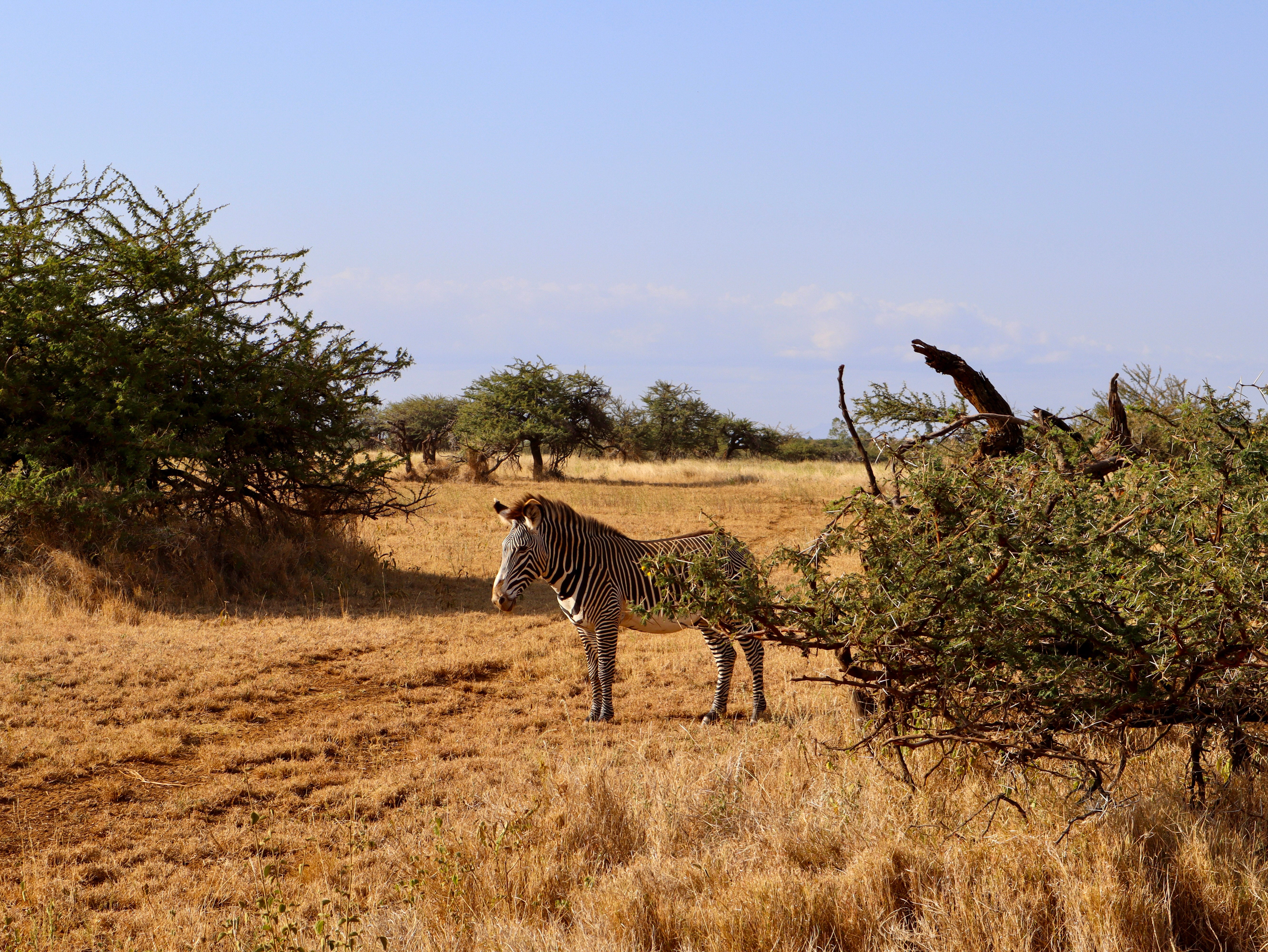
Read more: The world’s best safari lodges, from treetops tents to shipwreck cabins
Each stride edges me further into complete surrealism as we twist and turn further into the mercy of the African bush. A soft breeze tickles my neck, carrying smells of nearby wildlife mixed with the scent of rosemary from local herbs. My senses switch as I spot one of the extraordinary water and misting stations – a tunnel of very welcomed sprinklers.
Like a fairytale, rose petals splash red, pink and orange onto the otherwise solo-coloured path, guiding me to music and a refreshment handed over by a supporter in fancy dress. This support continues at stations dotted throughout the race, including a tunnel of cheering members of the Maasai community, alongside unwavering encouragement from my running partner, Toufik. Surprises had been promised at our training run, but not even the wildest fever-dream could have conjured what unfolded throughout the race.
Hearing a crack-crack-crack noise overheard draws my gaze upward to a helicopter, which takes the role of a sheepdog as it delicately herds animals away from the track – ensuring safety for both runners and animals, assisted by rangers strategically stationed along the route.
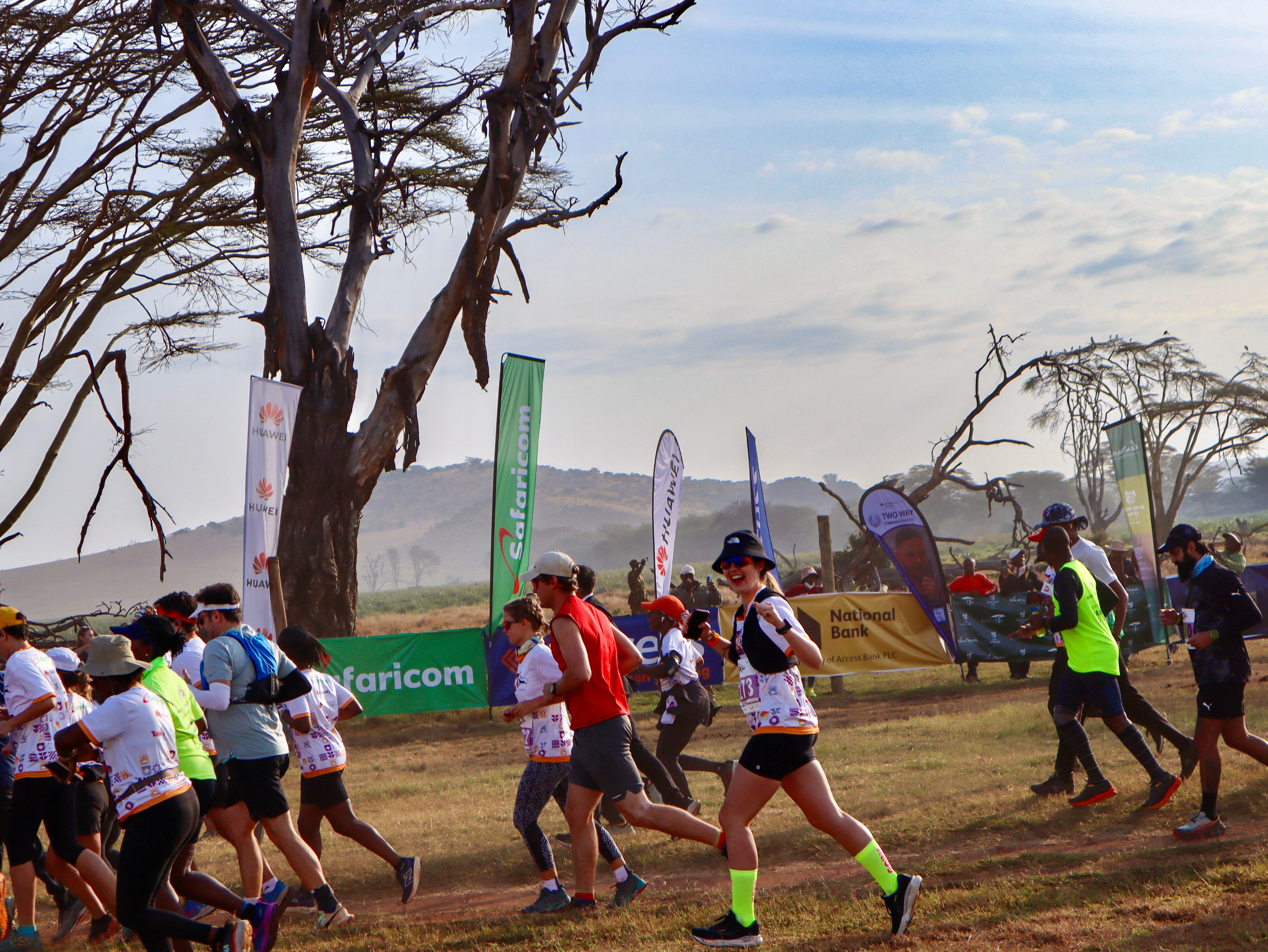
Read more: Everything you need to know about going on safari
My thoughts naturally drift to the pride of lions I saw just 24 hours earlier. Anxieties ease as I recall ranger Monica’s words: Lewa tracks every large animal using a wildlife-monitoring platform called EarthRanger.
Yes, that includes lions, I repeat to myself.
My breath rasps as I tackle a hill that holds a mirage-like ending, justifying why this race is regarded as one of the world’s toughest, and quickly humbling my previous marathon experience; and yet I enjoy – nearly – every step as my motivation is fuelled by thoughts of how this momentary hardship metamorphises into lasting support for the plains’ residents and surrounding communities.
I reflect on the past two days, which provided a window into how more than $10 million raised since the event’s inception has circled back into community development, healthcare and education initiatives across Africa. Learning is at the core, Guest Engagement Officer Aggrey tells us, with lessons on conservation harmonising respect between community and wildlife.
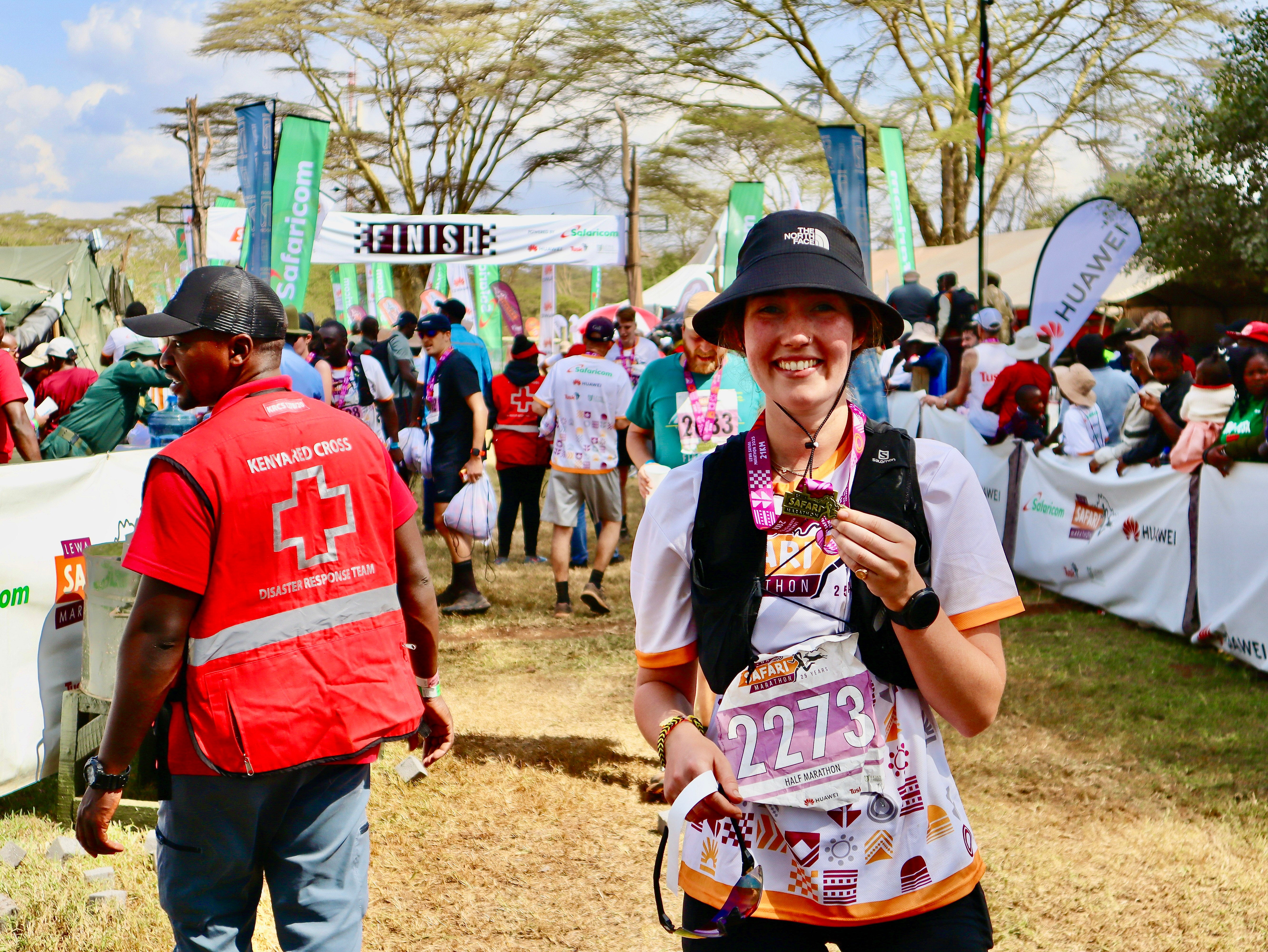
At the heart of this lies the Lewa Education Programme, led by Purity, which supports 27 surrounding schools, with the 28th set to be open January 2026. Funds accumulated from Tusk’s marathon contribute to curriculum support – including a digital literacy programme – student scholarships, boarding facilities, a resident garden, school infrastructure, and more.
The runners were invited to see the marathon’s impact first-hand at Rugusu Primary School. It was here that Purity announced newly purchased school land, which was entirely funded by the marathon.
Stepping into a classroom, walls are lined with impressive projects, highlighting the vast curriculum. We were shown animations and projects created by students, including one based on water. The run’s dusty dryness reflects northern Kenya’s dehydrated landscape, where funds support 17 water projects that benefit more than 50,000 people across Lewa communities.
We also visited Rugusu Springs, established in 2003 as the inaugural project, which provides clean water to 5,000 people and their livestock. Water-borne diseases have since been eradicated, explains Lawrence, head of community development at Lewa, thanks to the provision of safe, clean water to the community.
Read more: Is there such thing as an affordable safari? How to do it on a budget
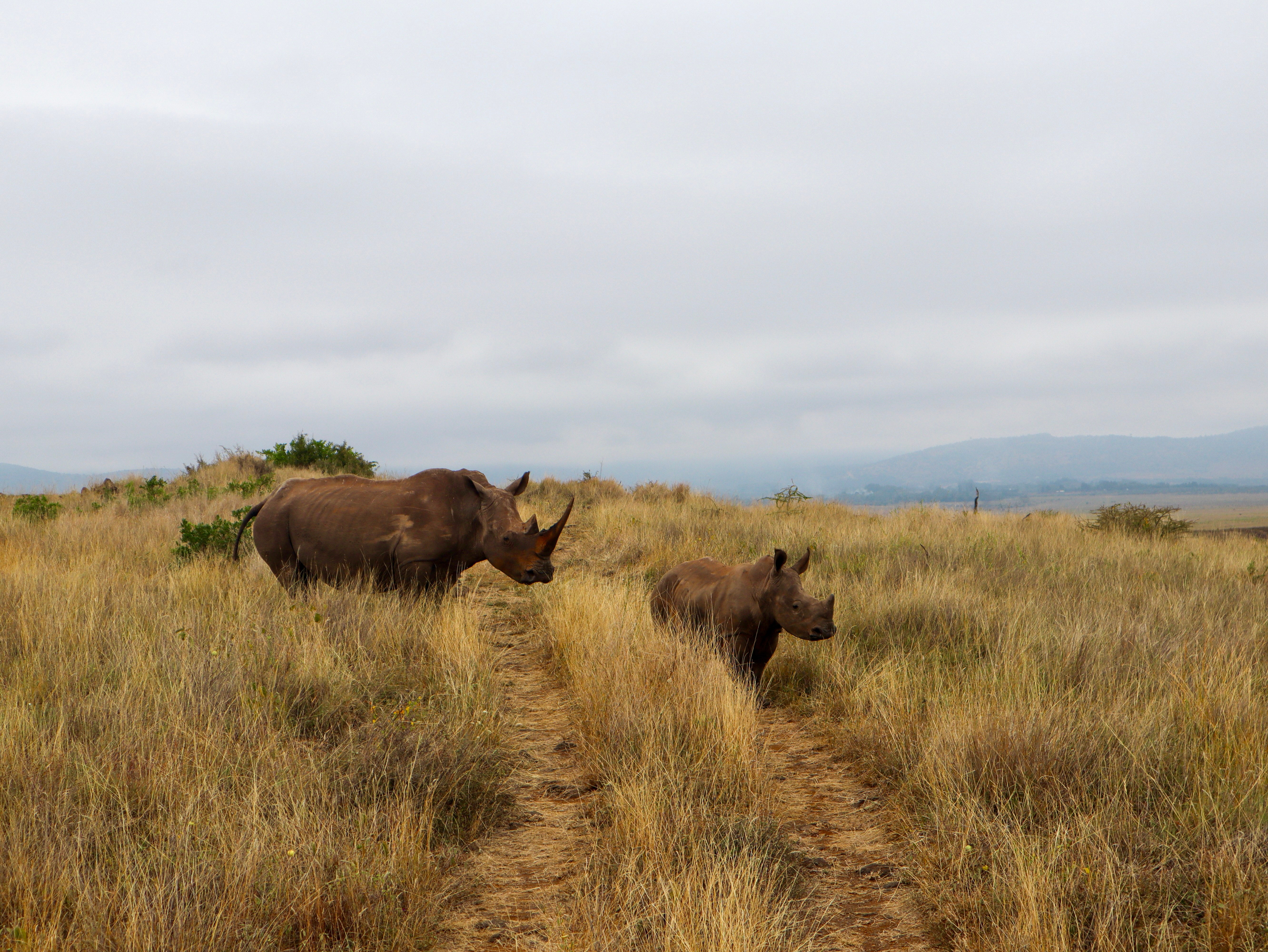
Driving away from the phenomenal hospitality of Elewana Lewa Safari Camp for the last time, our remarkable driver George took us to the heart of the Craig family’s cause. My body swayed emphatically as the wheels of the vehicle navigated the terrain, and I spotted a baby rhino with its mother. Creeping closer, we found ourselves in a crèche of rhinos. We learned that no poaching attempts have occurred in Lewa since 2019, under the vigilant protection of 150 rangers. I glanced over a rhino’s shoulder and saw an elephant in the distance.
Reaching the sign where left takes you to the finish and right for the second loop to round-up to a marathon, music and clapping crescendo as I snake through trees towards the finish line with celebrations reaching an all-encompassing peak as I cross. I rejoice in my decision of choosing the half – though, perhaps I will take a right next time.
Isabella was hosted by Tusk Trust through Exceptional Travel and Elewana Collection.
How to do it
Exceptional Travel offers a Lewa Safari Marathon itinerary from £2,295 per person, with four nights’ accommodation, daily breakfast, lunches and dinners on Lewa, game drives, project visits and marathon transportation, return domestic flights and flying doctor emergency evacuation cover. To take part in the event, participants must pay a £150 entry fee and fundraise £1,750. To register your interest in next year’s race, email lauren@tusk.org.
British Airways provides direct flights from London Heathrow to Jomo Kenyatta International Airport, Nairobi. Safarilink offers flights between Nairobi Wilson Airport to Lewa Wildlife Conservancy.
Read more: Overtourism is threatening wildlife – here’s how to have a responsible holiday

.jpeg)
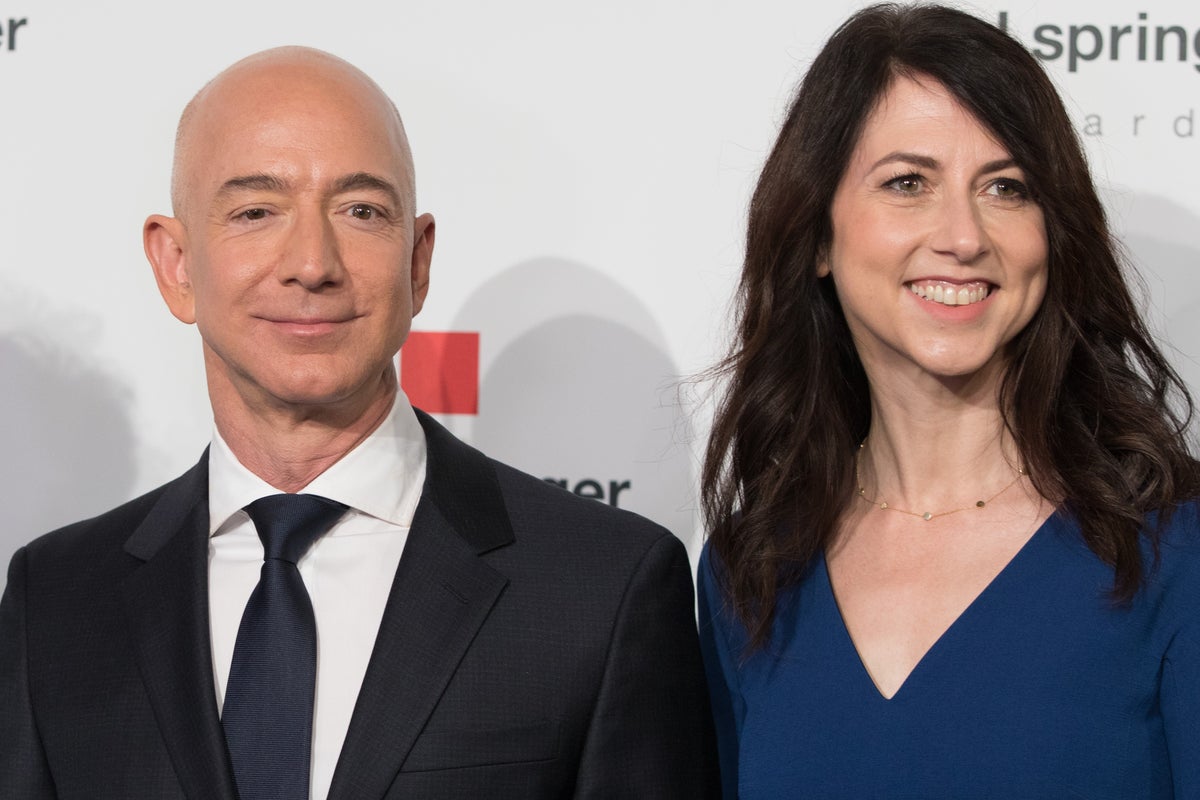



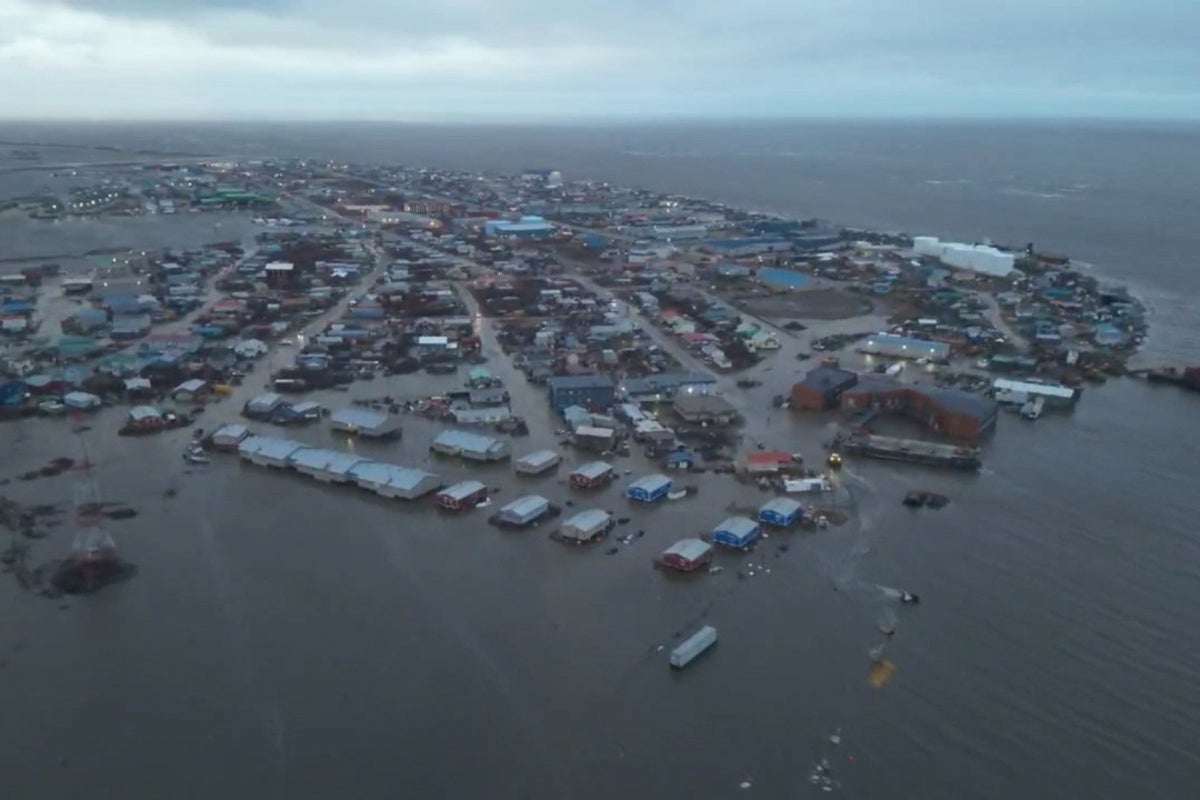










.jpg?trim=0,0,0,0&width=1200&height=800&crop=1200:800)

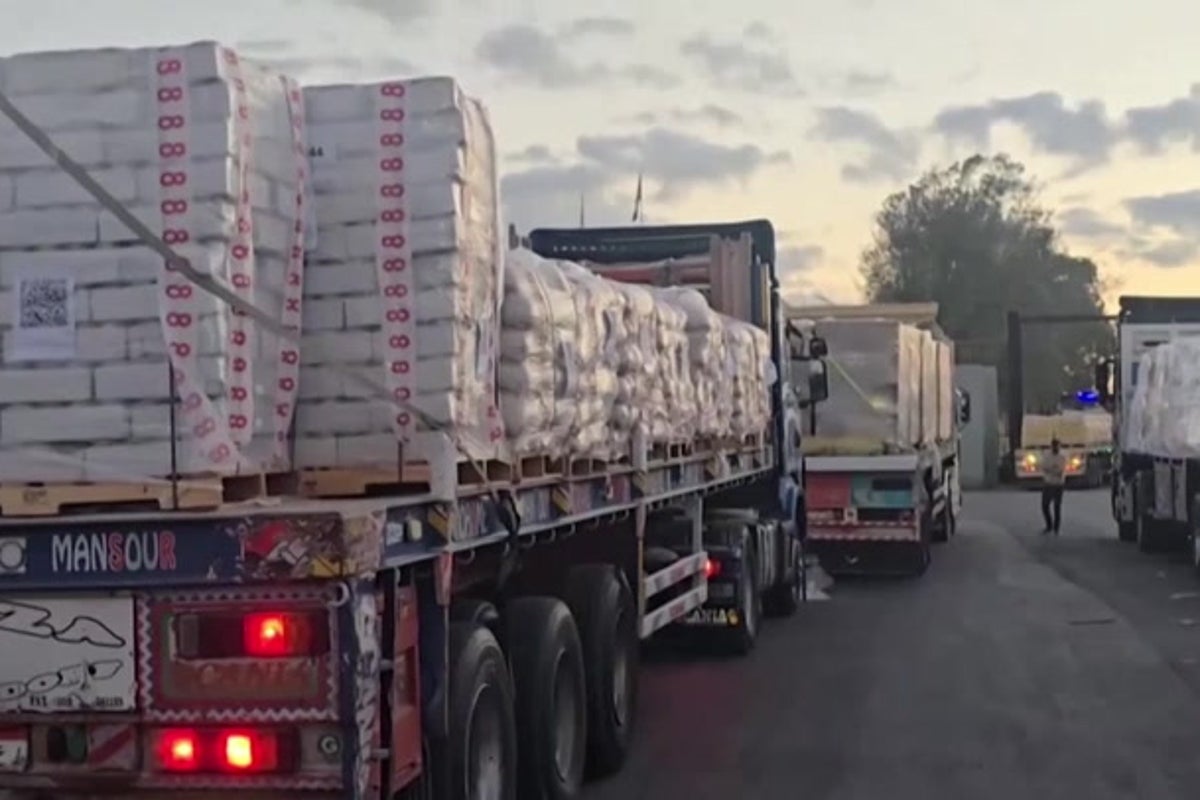




.jpeg)













 English (US) ·
English (US) ·